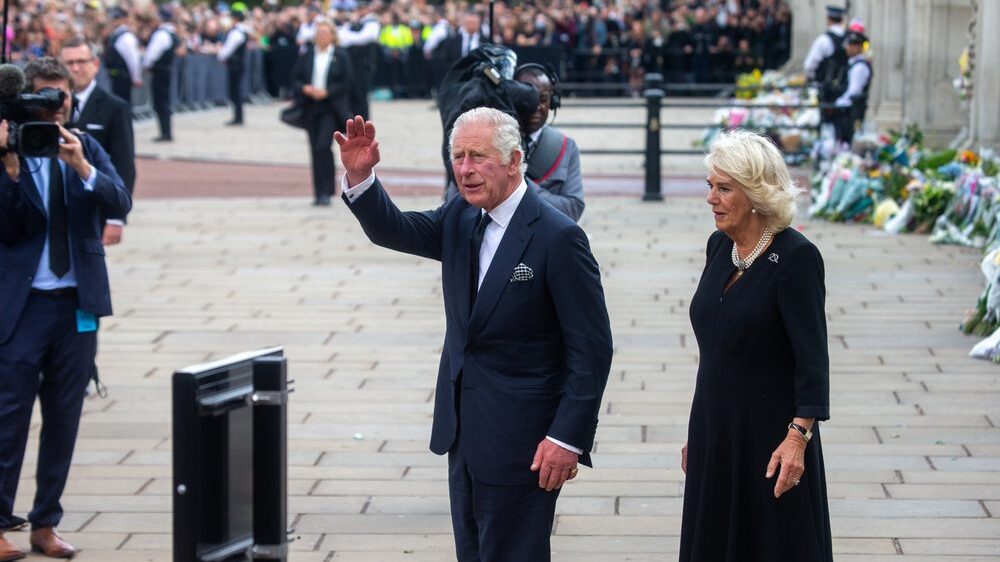
King Charles III and Queen Consort Camilla outside Buckingham Palace.
Photo: I T S / Shutterstock.com
Since the passing of Queen Elizabeth II, commentators have been busy noting their expectations that the coronation of King Charles III—much like the reign that will follow it—will be a ‘slimmed down’ affair. Few would doubt that the May 6th event will be far removed from that held in 1953; the world, just shy of seven decades later, is very different from what it was then.
Much of the ceremony will, however, look similar to the last. Westminster Abbey’s coronation chair will seat its 27th monarch in 700 years, who will be dressed in robes “steeped in tradition.” The anointing of Charles, described as the most sacred part of the coronation, will also remain hidden, despite previous reports to the contrary. Those tuning in will hear a ceremony not too distant from the previous, too, with music critic Ivan Hewett writing that “the music will be rooted in tradition, with some interesting twists.”
Beyond this, it is expected that the coronation will be grand, but less so than the last. The Daily Telegraph quoted one “insider” who said “it’s going to look like very small beer indeed. The level of bling is going to be very sharply reduced.” This, they added, was in part because “70 years on from the last coronation, we simply aren’t capable of putting on the kind of full-blown pageantry that we did in 1953.” Most of the changes are, however, more the result of choice; it is believed the King doesn’t want to overstep the mark given the ongoing cost-of-living crisis. “Far fewer” aristocrats and parliamentarians will be in attendance; again because the King is reported to be “determined to reflect modern, multicultural society and ensure his society is inclusive.” The King’s fleet will not sail to mark the event either—another break from tradition, pinned on avoiding high costs.
For the purpose of “avoid[ing] controversy at all costs” and drawing attention to Britain’s history of colonial rule, Queen Camilla will also don a crown not worn in public since 1937, rather than one featuring the Koh-i-Noor diamond. It is believed to be for the same reason that a traditional Commonwealth banquet has been cut from this year’s plans. On this decision, a spokesman from the Commonwealth Parliamentary Association said that “the Commonwealth, its members and its institutions have changed hugely since 1953, and what was appropriate then will not necessarily be appropriate now.”
Much attention is likely to be paid on the day to the religious language used by the King, whose “great interest in non-Christian faiths, especially Islam and Judaism,” has long been a point of much interest.
On the whole, however, royalists and fans of pageantry have little to worry about. That is according to royal commentator Richard Fitzwilliams, who told The European Conservative that the event, in a sense, won’t really be ‘slimmed down’ at all.
The coronation was always going to be ‘slimmed down’ from the iconic event in 1953 which lasted for three hours, was watched in Westminster Abbey by 8,000 guests and involved over 40,000 members of the armed forces. It also launched television. Britain is now the only European country to have a coronation and this, though it will obviously be very different from an event held in an era of deference when Britain was still an imperial power, it will nonetheless be magnificent.
Held over a three-day weekend, it will have vast worldwide appeal. It isn’t really “slimmed down” at all!
Mr. Fitzwilliam’s comments on the broader reign of King Charles can be found here.
